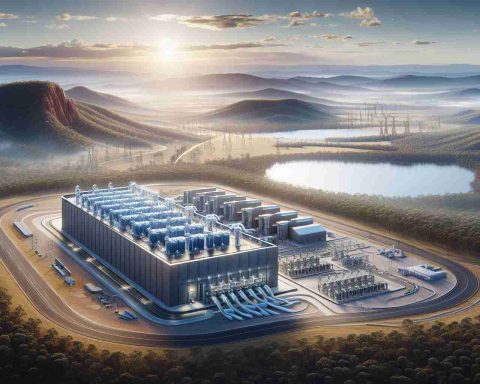The End of Canoo: A New Lesson in Tech Startups
In a surprise move that has reverberated across the electric vehicle (EV) landscape, Canoo, a once-promising EV startup, has announced its closure amid Chapter 7 bankruptcy proceedings in Delaware. Faced with an asset-debt imbalance—with $126 million in assets and debts surpassing $164 million—Canoo’s journey highlights the precarious nature of the startup world.
Unforeseen Challenges in Cementing a Foothold
Despite innovative projects, such as its collaboration with NASA’s Artemis missions and a contract to provide 4,500 delivery vans for Walmart, Canoo struggled to achieve financial sustainability. The company faced major barriers, failing to secure essential funds from both domestic and international investors. An operational freeze in Oklahoma further signaled its underlying vulnerabilities.
Impact on the Larger EV Ecosystem
Canoo’s unexpected demise signals broader complexities within the EV sector. As startups attempt to disrupt established industries, they often encounter a challenging equilibrium between ground-breaking innovation and financial viability. With Canoo’s closure, there’s heightened awareness about the significant hurdles in acquiring investment capital, especially as investors seek assured returns.
Navigating the Future of Innovation
The Canoo saga offers critical insights for tech innovators. In an era where sustainable practices and technological advancements are paramount, the ability to navigate financial landscapes with strong leadership and strategic foresight is crucial. Future trends may see more stringent measures to support emerging EV startups, ensuring resilience through robust business models.
As the world marches toward a greener horizon, Canoo’s story serves as a poignant lesson on the challenges and opportunities facing the innovators of tomorrow.
The Ripples of Canoo’s Collapse: Lessons for the Future
The closure of Canoo, a promising electric vehicle (EV) startup, marks a significant chapter in the evolving narrative of technological innovation. Beyond the immediate setback for Canoo, this event underscores vital themes that affect the environment, humanity, and the global economy. The failure of Canoo to crystallize its potential within the burgeoning EV market serves as a bellwether for future endeavors aiming to sustain and transform our industrial and environmental landscapes.
Environmental Implications and the Path Forward
The contribution of EV startups like Canoo is critical to global environmental objectives, particularly in reducing carbon emissions and combating climate change. Strategically transitioning from fossil fuel-dependent transportation to electric-based systems could radically cut pollution levels and foster cleaner cities. Canoo’s fall reminds us that while the demand for sustainable transportation solutions has never been greater, the path to achieving these goals is fraught with financial and logistical challenges.
The environmental impact of Canoo’s collapse also raises questions about resource allocation. Investments diverted from potentially more successful or sustainable ventures reflect larger systemic issues. As we navigate toward a future where reducing environmental impacts is vital, efficient allocation of resources and strategic investor commitment become imperative.
Economic Repercussions and the Future Landscape
Economically, the demise of Canoo represents more than the closure of a single company; it signifies a broader volatility within the tech startup ecosystem, particularly for those innovating in the green tech sector. This environment, while fertile for breakthroughs, is also a minefield of financial unpredictability. Investors’ hesitance following such closures could tighten capital flow to new ventures, potentially stifling innovation that is crucial for economic and environmental advancement.
For humanity’s broader economic future, the ability to sustain and nurture such innovations is essential. A robust economic framework that supports startups through their volatile growth periods can foster more sustainable solutions, which are invaluable for continued progress in green technologies.
Humanity’s Innovation Trajectory
The story of Canoo also speaks to the broader narrative of human innovation and the pursuit of sustainability. As technologists and visionaries strive toward a future defined by eco-friendly innovations, the balance between creativity and practicality becomes pivotal. Canoo’s journey highlights the need for innovators to anticipate and adapt to financial landscapes with agility, ensuring that transformative ideas reach fruition.
For the future of humanity, the Canoo episode serves as a crucial lesson in resilience and adaptation. To succeed, technological innovators must learn to combine groundbreaking ideas with business acumen and strategic partnerships, creating synergies that can withstand the test of time.
In summation, the closure of Canoo extends beyond its immediate financial distress, imparting critical lessons on the environmental exigencies, economic structures, and innovation strategies necessary for our shared future. As we endeavor to build a sustainable tomorrow, learning from these setbacks remains indispensable for the architects of our evolving world.
Canoo’s Closure: What It Means for the Future of EV Startups
Analyzing Canoo’s Downfall in the Electric Vehicle Industry
The unexpected closure of Canoo, an emerging electric vehicle (EV) startup, has sent shockwaves through the industry, drawing attention to the intricate challenges that these companies face. Despite some high-profile partnerships and innovative projects, Canoo couldn’t achieve the financial stability needed to continue. This article delves into the implications of Canoo’s downfall and its broader impact on the EV ecosystem.
Canoo in Retrospect: Lessons on Financial Strategy
Canoo’s initial promise was underscored by its partnerships, such as its collaboration with NASA and Walmart contracts. However, its inability to secure consistent and substantial funding was a critical misstep. Many tech startups, especially in the EV sector, depend heavily on investor confidence which, if shaken, can lead to rapid decline. Canoo’s asset-debt imbalance of $126 million versus debts exceeding $164 million exemplifies the risk of aggressive growth without secure financial backing.
Key Challenges for EV Startups
The closure of Canoo highlights several key challenges that EV startups face:
– High Capital Requirement: The EV industry requires significant upfront investment in research, development, and infrastructure.
– Investor Hesitancy: As investors demand swift and assured returns, startups struggle to balance innovative ventures with financial viability.
– Market Competition: The emerging market is highly competitive, with established players holding significant advantages over new entrants.
The Path Forward: Insights for Future Startups
Canoo’s experience provides vital insights for the next generation of EV startups:
– Sustainable Business Models: A robust and flexible business model that can adapt to financial shifts is essential.
– Strategic Partnerships: Aligning with established entities for technological and financial support can be a stabilizing factor.
– Resilient Leadership: Strong leadership capable of navigating complex financial landscapes can differentiate successful ventures from those that fail.
Predictions for the EV Industry
Going forward, the EV industry may witness tightening investor scrutiny, demanding stronger proof of profitability before injecting capital. There may also be increased emphasis on strategic financial planning from inception to growth to safeguard against similar downfalls. Startups could benefit from policy frameworks that support sustainable growth, facilitating secure entry and expansion into the market.
Conclusion
While Canoo’s closure is a cautionary tale, it also serves as a powerful narrative about the need for balanced innovation and financial foresight in the rapidly evolving landscape of EV startups. As the world accelerates toward sustainable transport solutions, the lessons learned from Canoo could guide future startups toward more secure and strategic pathways.
For more information on developments in the electric vehicle sector, visit the official Tesla website.








